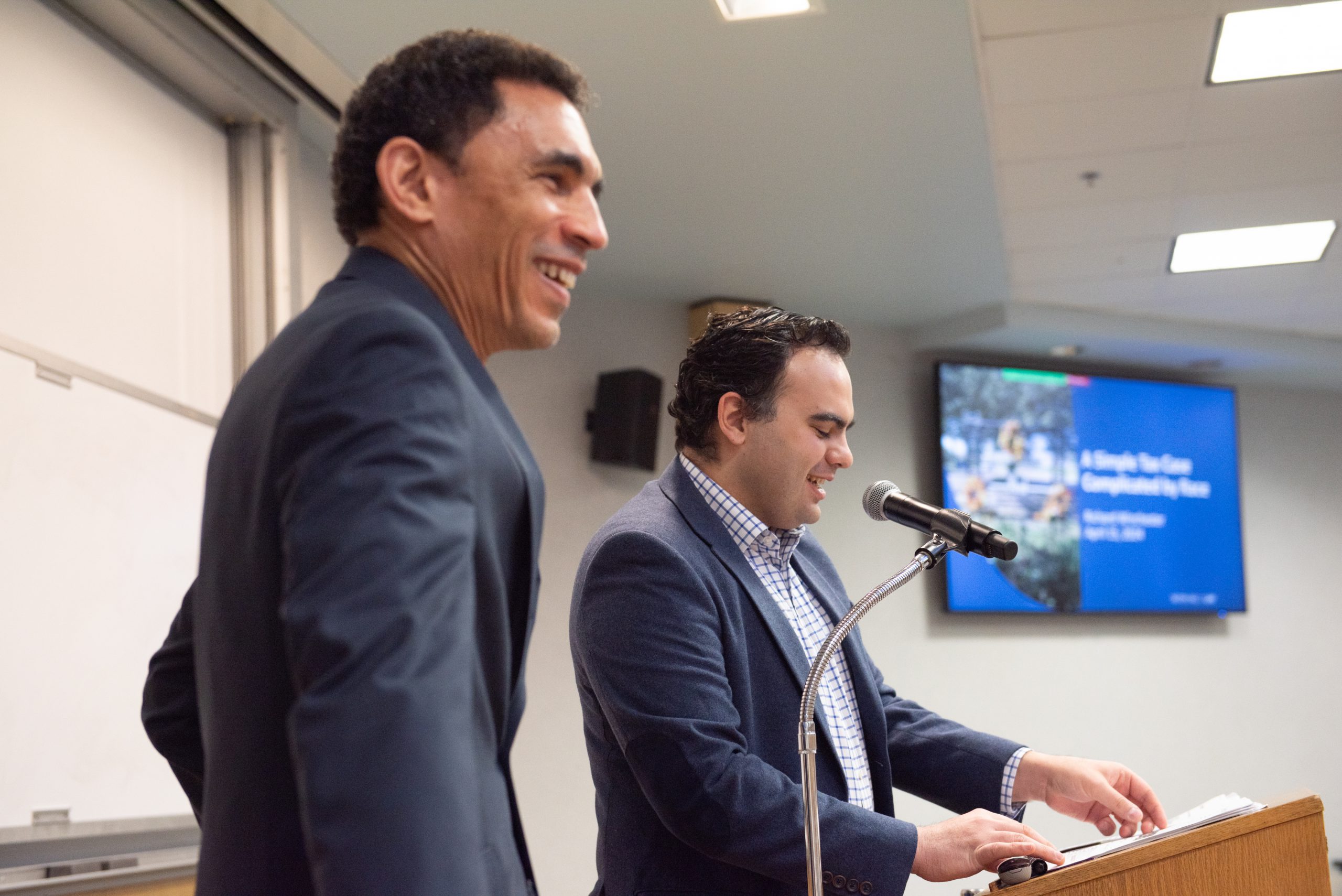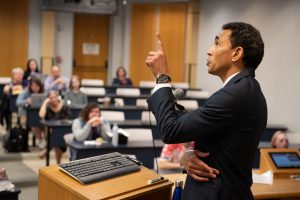Summary: Richard Winchester delivered this year’s Beck Lecture titled “A Simple Tax Case Complicated by Race” where he highlighted why Judges, including those deciding tax cases, must be sensitive to any implicit racial biases that might cloud their thinking.
Intersections between race and the law persist intensely within the U.S. legal system. Dorothy Brown famously writes in her book, The Whiteness of Wealth, that she pursued a career in tax law to “get away from race.” On its face, being a tax professional could be exactly what she wrote — a way to get away from all biases including those rooted in race. From the outside, tax looks simply like writing or typing dollar values into forms or advocating for the legitimacy of tax planning in a court room.
The 2024 Beck Lecture at Temple Law though pointed to a clear example of how racism is still forcing its way into tax issues that should be decided solely on the merits of the tax planning that took place. The case, Pontchartrain Park Homes, Inc. v. Commissioner, pitted a real estate firm against the IRS to decide the tax treatment of a sale of land. If the land was sold in the taxpayer’s “ordinary course of business,” the proceeds would be deemed ordinary income to the taxpayer. Were the sale of land deemed one of a capital asset or property not sold in the ordinary course of business, the proceeds would have received capital gains treatment instead. Capital gains were taxed at nearly half the rate of ordinary income at the time.
Here, Judge Withey, in his 1963 published opinion from the Tax Court, departed from the operation of Section 1221, the statute that typically governed a transaction like this. The land, which was a portion of Pontchartrain Park, was to be used as a subdivision for Black families in New Orleans. Judge Withey wrote that because the housing market for Black families was “unknown and untested” as well as “problematical,” the sale of the undeveloped land could not have been in the ordinary course of business for Pontchartrain Park Homes. Therefore, the sale of land warranted capital gains treatment instead. This decision was a clear, unprompted departure from the merits the case should have been decided on. Judge Withey’s analysis suggested that because Black people were involved, the whole calculus regarding the tax treatment of this sale should change.
The 5th Circuit then took this case, and it was put before two judges who would be later referred to as part of the 5th Circuit Four — a group of four justices who became known for a series of decisions crucial in advancing the civil and political rights of African Americans. While they affirmed the Tax Court’s decision, they did so on the grounds that the case should have been decided on the merits of the statute itself —openly declining to approve “any broad standards perhaps suggested in the Tax Court’s opinion.” Their legal rationale was incredibly notable; however, legal databases fail to note that the 5th Circuit decision was a departure from how the Tax Court decided this case.
Professor Richard Winchester, who delivered the 2024 Beck Lecture, came across this case almost by accident. He had done a great deal of research into the Federal Housing Administration (FHA) in connection with an article he wrote for a symposium issue of the Kentucky Law Journal on the racial wealth gap. He took a deep dive into the origins of the FHA and its policy against offering its low-cost, government-insured mortgages to Blacks.
However, Professor Winchester also learned that the agency occasionally made an exception to its whites-only policy. Pontchartrain Park was the most notable exception because of its size, consisting of 1,000 homes for Blacks. Pontchartrain Park was of particular interest to him because of its location in New Orleans where he was born and raised until he finished high school.
He knew nothing of the case before stumbling upon it in his research, but now, he is in the process of writing an entire book on this community and plans to travel down there soon to advance his project. As many groups attempt to shroud the anti-Black bias that persists in literature even beyond court opinions, we are thankful that scholars like Professor Winchester continue to uncover it in new and unexpected settings.
The Phyllis W. Beck Lecture is delivered each year by a Visiting Professor who is a notable leader and outstanding scholar in their field. This year’s Beck Lecture was organized by Professor Omeed Firouzi.
Victor Ficarra is a 3L at Temple University Beasley School of Law and a Podcast Editor with the Temple 10-Q.



